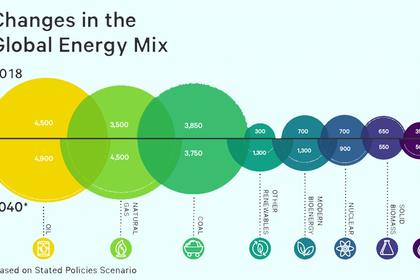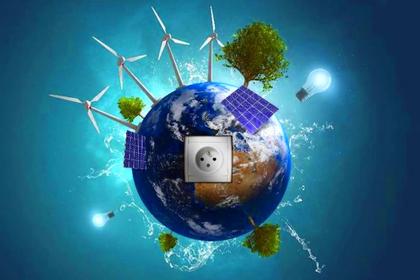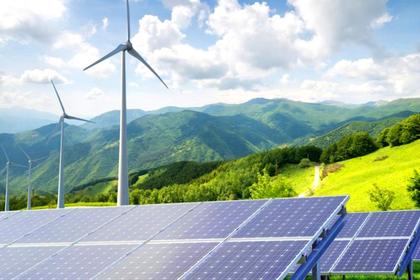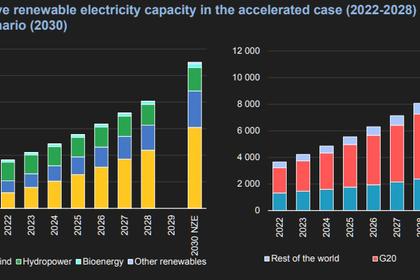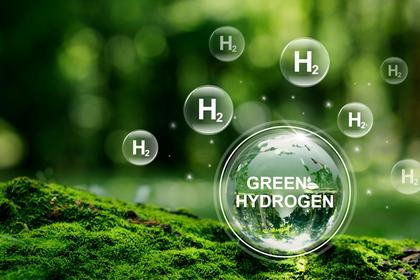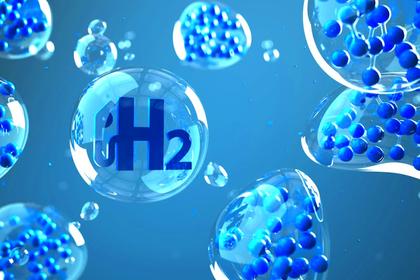
GLOBAL HYDROGEN ENERGY MARKET
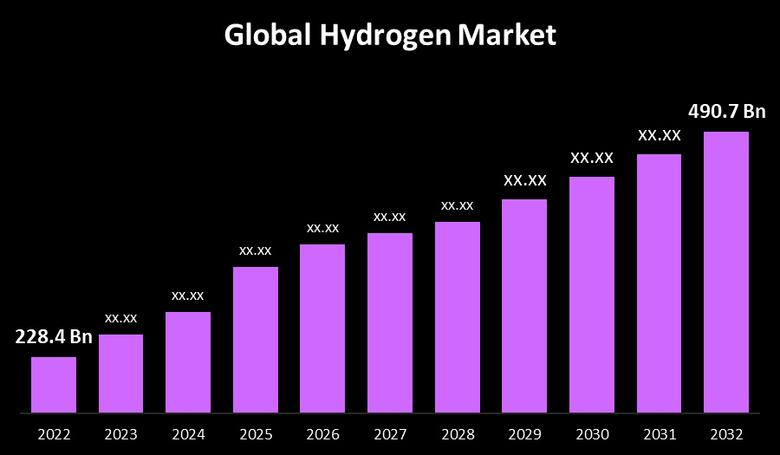
By Mohammad Hanif SME, TCS Business Analyst & Transformation Consultant for Energy & Utilities
ENERGYCENTRAL - Sep 17, 2024 - Why and what’s with Hydrogen? Is the Key question that needs to be taken up. At the same time, we need to understand the current key aspects, challenges to it and our scope in it.
Distinguishing hydrogen production methods by colour is a common practice. The hydrogen spectrum encompasses brown hydrogen from coal, grey hydrogen from natural gas, and blue hydrogen, derived from grey or brown hydrogen with carbon capture and storage (CCS) to reduce carbon emissions. Green hydrogen, generated through water electrolysis powered by renewable energy, holds promise for nearly zero emissions. However, as interest grows in low-carbon hydrogen, the industry is moving beyond simplistic colour categorizations.
Hydrogen in Global Market: A 2024 Perspective
In 2024, the hydrogen landscape is marked by ambitious plans, policy developments, and challenges across the globe. Here are some key highlights:
- The U.S. Department of Energy (DOE) is spearheading $6 billion in industrial decarbonization funds and $3.5 billion in battery processing grants, with a focus on hydrogen hubs and clean energy regulations.
- The U.S. hydrogen tax credit guidance, EU quotas, and Japan's contracts for difference are expected to drive hydrogen use in sectors like oil refining, shipping, and aviation .
- European hydrogen auctions and the UK's Hydrogen Allocation Round are set to open in 2024, while the EU's second tranche of its Eur3 billion European Hydrogen Bank fund will open in spring .
- A fierce fight over the implementation of the IRA's 45V clean hydrogen tax credits is anticipated, with the Treasury Department's guidance determining the course of the industry .
- Hydrogen production and demand are expected to grow in 2024, but progress remains slow due to high production and transportation costs.
Across the globe, various stakeholders and solutions are emerging to address hydrogen utilities in different sectors. Here are some notable examples:
Hydrogen Hubs and Utilities:
- The U.S. Department of Energy (DOE) is supporting hydrogen hubs, which involve utility companies working together along the full hydrogen value chain, including production, offtake, and infrastructure.
- Utility companies are exploring hydrogen for carbon-free generation and new business models, with some considering hydrogen for long-duration energy storage and blending with natural gas in gas turbine power plants.
Hydrogen Production and Distribution:
- Startups like Found Energy and Hiringa Energy are developing hydrogen distribution systems and refueling networks to support hydrogen-powered vehicles.
- HY2GEN is utilizing solar energy to produce green hydrogen for mobility and maritime sectors.
- Norwegian startup Horisont Energi is producing blue hydrogen and ammonia for transportation and storage.
Hydrogen Applications:
- Hydrogen is being considered for industrial decarbonization, such as oil refining, steel and cement manufacturing, and ammonia production.
- Hydrogen is also being explored for heavy-duty transport, energy-intensive activities, and residential heating.
These examples highlight the diverse roles that various stakeholders, including startups, utilities, and policymakers, are playing in the hydrogen economy.
Despite these advancements, the hydrogen sector faces challenges such as
- Technical issues with electrolyzers,
- Delays in policy implementation,
- The need for long-term offtake agreements.
The year 2024 will be pivotal for hydrogen's role in decarbonizing the global economy and policy decisions shaping the industry's future.
Utilities & Hydrogen:
In Wood Mackenzie’s Lens Hydrogen project tracker, at least 30% of the 565 GWe of announced or operational green hydrogen projects plan to be grid connected.
Hydrogen is poised to play a significant role in global utilities, with various use cases emerging across sectors.
Key applications include:
- Electricity generation: Hydrogen is being considered as a low-emission fuel to replace unabated fossil fuels, with incentives and policies aimed at decarbonization.
- Industrial decarbonization: Hydrogen hubs and clean energy regulations are driving hydrogen use in industries like oil refining, shipping, and aviation.
- Transportation: Hydrogen-powered vehicles and fueling infrastructure are gaining traction, with the 45V hydrogen tax credits expected to spur growth.
- Steel production: Hydrogen is being used to decarbonize steel manufacturing, with projects like the H2 Green Steel hydrogen project in Sweden.
Here are some notable hydrogen projects in utilities across the globe:
1. Hydrogen Production and Infrastructure Projects Database - The International Energy Agency (IEA) tracks hydrogen projects worldwide, including those by companies like Air Liquide, bp, Equinor, and Snam.
2. Electric Utilities and Hydrogen - Utilities like the Tennessee Valley Authority (TVA) and Los Angeles Department of Water and Power (LADWP) are exploring hydrogen for carbon-free generation and new business models.
3. Found Energy - A U.S.-based startup developing hydrogen energy distribution systems using metallic aluminum to produce hydrogen on demand.
4. Hiringa Energy - Establishing a hydrogen refueling network in New Zealand.
5. HY2GEN - A German startup utilizing solar energy to produce green hydrogen for mobility and maritime sectors.
6. Horisont Energi - A Norwegian startup producing blue hydrogen and ammonia for transportation and storage.
7. Hanwha Energy - Operating the world's largest industrial hydrogen-fuel-cell power plant in South Korea.
8. Shell - Operating a 10-MW PEM green hydrogen electrolyzer in Germany and a 20-MW power-to-hydrogen electrolyzer in China.
9. GEO Consortium - A low-carbon fuels project in Oman, led by OQ, InterContinental Energy, and EnerTech, with Worley providing concept feasibility study services.
10. U.S. Hydrogen Hubs - The U.S. Department of Energy (DOE) is supporting hydrogen hubs, with 33 encouraged responses to submit formal applications for funding.
These above examples highlight the diverse range of hydrogen projects in utilities worldwide, with a focus on:
- Decarbonization
- Energy generation
- Infrastructure development.
In the hydrogen industry, System Integrators (SI) companies can play crucial roles in various sectors and areas of utilities.
Here are some specific sectors where they can contribute:
- Green Hydrogen Consulting: providing strategic guidance and solutions for green hydrogen production, distribution, and storage, leveraging their experience in natural gas transmission and renewable energy.
- Hydrogen Value Chain: Market frameworks like 'green hydrogen enabling framework' highlights key elements needed to make green hydrogen a reality, focusing on six key enablers.
- Chemical Industry: opportunities for the chemical industry to play a role in the hydrogen value chain, such as providing materials for electrolysis and energy-generation methods, or operating hydrogen-related processes.
System Integrators (SI) can contribute to the hydrogen industry by offering and helping utilities and other stakeholders navigate the challenges and opportunities in the hydrogen sector.
- Consulting
- Digital solutions
- System Integrator services
Top 10 Hydrogen Industry Trends (2024)
- Hydrogen Fuel Cells
- Renewable Hydrogen
- Advanced Electrolysis
- X-to-Hydrogen-to-X
- Hydrogen Carriers
- Carbon Capture, Utilization & Storage
- Hydrogen Distribution
- Hydrogen Liquefaction & Compression
- Combined Heat & Power
- Hydrogen Propulsion
Benefits & Challenges:
Hydrogen projects in utilities offer several environmental benefits, including:
- Decarbonization: Hydrogen can be produced from diverse domestic resources with the potential for near-zero greenhouse gas emissions, contributing to the decarbonization of the energy sector.
- Clean energy generation: Hydrogen-powered fuel cells emit only water vapor and warm air, reducing air pollution and improving public health.
- Energy storage: Hydrogen can be stored for long periods, allowing for the use of renewable energy when it's not available, thus increasing the efficiency of renewable energy sources.
- Versatility: Hydrogen can be used in various sectors, such as transportation, industry, and energy storage, making it a flexible solution for decarbonization.
- Energy security: Hydrogen can be produced domestically from diverse resources, reducing dependence on imported fossil fuels and improving energy security.
However, there are also challenges and concerns related to hydrogen projects, such as high production costs, safety issues, and the need for infrastructure development. Policymakers and utilities must carefully consider the role of hydrogen in their decarbonization strategies to ensure that it is a viable and cost-effective solution. The hydrogen sector is still in its infancy, and stakeholders are converging on the idea of Contracts for Difference for green hydrogen to prioritize its use.
-----
Earlier:
